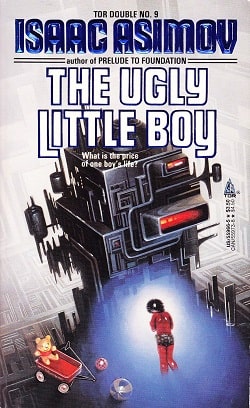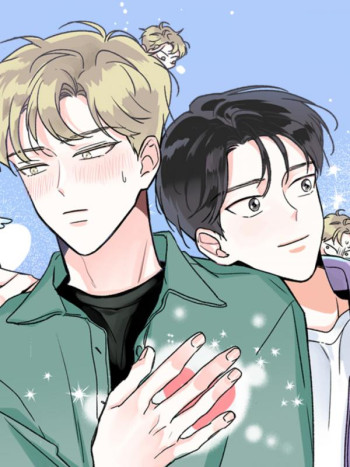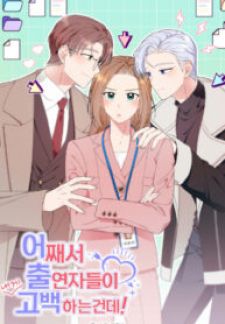Summary

The Ugly Little Boy
by Isaac Asimov
Asimov wrote the short story "The Ugly Little Boy" in 1958. But there is much more to the story of the little Neanderthal boy plucked out of time and transferred to the 21st century. Now, Robert Silverberg--in this second collaboration with Asimov--has made this sf classic into an engrossing novel-length tale.
.
Read
The Ugly Little Boy on http://kissnovel.net
Martial Peak Reviews
Isaac Asimov's "The Ugly Little Boy," originally penned as a short story in 1958, has been expanded into a novel-length tale through the collaborative efforts of Robert Silverberg. This transformation not only enriches the narrative but also deepens the exploration of its themes, characters, and the emotional landscape that surrounds the titular character—a Neanderthal boy who is thrust into the complexities of the 21st century.
At its core, "The Ugly Little Boy" is a poignant exploration of alienation, humanity, and the nature of love. The story revolves around a young Neanderthal boy, who is abducted from his time and brought into a future that is both fascinating and terrifying. The boy, referred to as "the ugly little boy," embodies the struggle of being different in a world that often values conformity. His appearance, a stark reminder of humanity's evolutionary past, serves as a metaphor for the broader themes of acceptance and the innate desire for connection.
Asimov and Silverberg masterfully craft the character of the boy, imbuing him with a sense of innocence and vulnerability that resonates deeply with readers. The boy's experiences in the 21st century are marked by confusion and fear, yet they also reveal his resilience and capacity for growth. The juxtaposition of his primal instincts against the backdrop of advanced technology and societal norms creates a rich tapestry of conflict and introspection.
One of the most compelling aspects of the novel is the relationship between the boy and his caretaker, a woman named Edith. As she grapples with her own feelings of maternal instinct and societal expectations, Edith becomes a pivotal figure in the boy's life. Their bond evolves from one of mere obligation to a profound connection that challenges both characters to confront their own prejudices and fears. This relationship serves as a microcosm of the larger societal issues at play, highlighting the struggle for understanding and acceptance across cultural and temporal divides.
Thematically, "The Ugly Little Boy" delves into the concept of time and its implications on identity. The boy's displacement in time raises questions about what it means to belong and how our past shapes our present. Asimov and Silverberg invite readers to consider the implications of time travel not just as a plot device, but as a profound commentary on the human condition. The boy's journey is not merely a physical one; it is an emotional and psychological odyssey that forces both him and those around him to confront their own biases and fears.
Moreover, the novel explores the ethical dilemmas associated with scientific advancement. The boy's abduction from his time is a result of human curiosity and the desire to understand our evolutionary roots. However, this quest for knowledge comes at a significant cost, raising questions about the morality of manipulating time and the consequences of playing god. Asimov and Silverberg challenge readers to reflect on the responsibilities that come with scientific progress and the potential ramifications of our actions on those who are vulnerable.
The prose in "The Ugly Little Boy" is both accessible and thought-provoking, a hallmark of Asimov's writing style. Silverberg's contributions further enhance the narrative, providing depth and nuance to the characters and their experiences. The pacing is well-balanced, allowing for moments of introspection and emotional resonance alongside the more action-driven elements of the plot. This careful construction ensures that readers remain engaged while also prompting them to reflect on the deeper themes at play.
In comparison to other works of science fiction that tackle similar themes, such as Ray Bradbury's "A Sound of Thunder" or H.G. Wells' "The Time Machine," "The Ugly Little Boy" stands out for its emotional depth and character-driven narrative. While Bradbury and Wells focus on the consequences of time travel and the impact of technology on society, Asimov and Silverberg place a greater emphasis on the personal and emotional ramifications of such advancements. This focus on character development allows for a more intimate exploration of the themes, making the story resonate on a deeper level.
Ultimately, "The Ugly Little Boy" is a powerful and moving tale that transcends its science fiction roots. It challenges readers to confront their own biases and assumptions while exploring the complexities of love, acceptance, and the human experience. Asimov and Silverberg's collaboration results in a narrative that is not only engaging but also profoundly impactful, leaving readers with lingering questions about the nature of humanity and our place in the universe.
In conclusion, "The Ugly Little Boy" is a must-read for fans of science fiction and those interested in stories that delve into the intricacies of human emotion and connection. Its timeless themes and rich character development ensure that it remains relevant and thought-provoking, inviting readers to reflect on their own understanding of what it means to be human. Whether you are a long-time admirer of Asimov's work or a newcomer to his storytelling, this novel is sure to leave a lasting impression.
























Reviews 0
Post a Reviews: